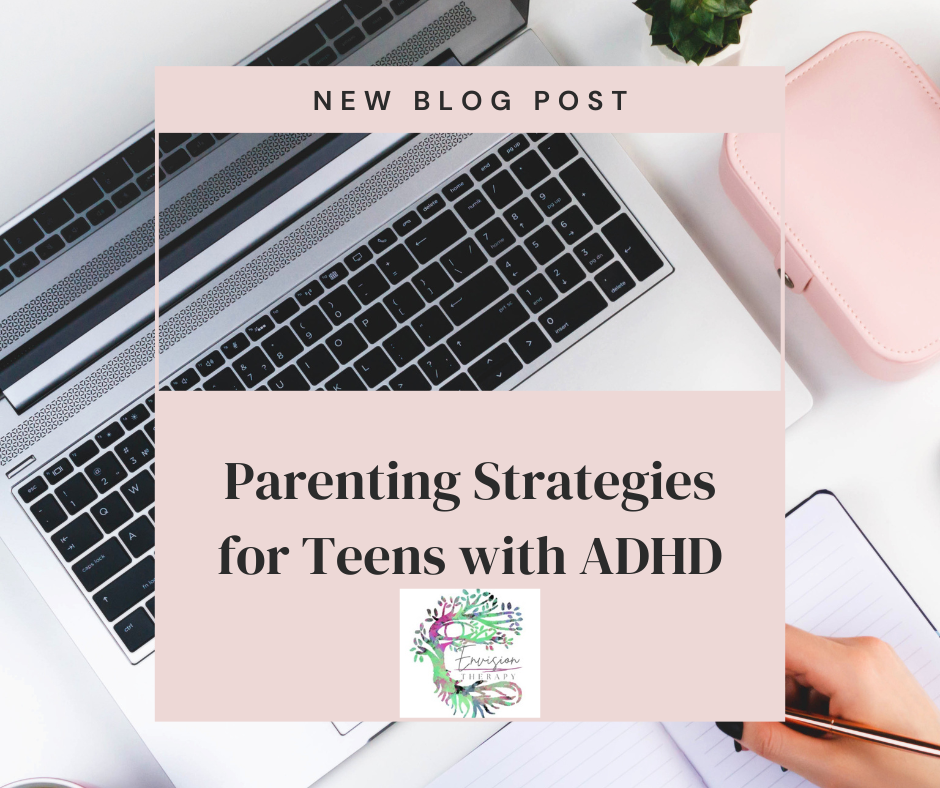Explore effective parenting strategies for teens with ADHD to foster growth and harmony at home. Learn practical tips for understanding and supporting your teenager.
Parenting teenagers can be a challenging journey, and when your teen has Attention Deficit Hyperactivity Disorder (ADHD), the challenges may seem even more formidable. The adolescent years are a period of growth, self-discovery, and establishing independence. For parents of teens with ADHD, understanding and implementing effective parenting strategies becomes crucial in navigating this unique terrain.
Parenting Strategies for Teens with ADHD:
Understanding ADHD:
Begin your parenting journey by gaining a deep understanding of ADHD. Recognize that ADHD is not just about hyperactivity but involves challenges with attention, impulse control, and executive functions. Knowledge is the foundation for effective parenting.
Open Communication:
Establish open lines of communication with your teenager. Encourage them to express their thoughts, feelings, and struggles. Active listening can provide valuable insights into their experiences, helping you tailor your support accordingly.
Recognizing Individual Strengths and Challenges
Understanding Individual Strengths:
Every teen with ADHD is unique. Identify and celebrate their individual strengths, talents, and interests. Focusing on their positive attributes can boost self-esteem and motivation.
Addressing Challenges:
Simultaneously, acknowledge and address their challenges. Work collaboratively to find solutions and coping mechanisms for difficulties related to organization, time management, and impulse control. Say, “I understand that focusing on tasks can be tough. How about we break it down together and find a way that works for you?”
Creating a Supportive Environment
Structured Routines:
Implement structured routines at home. Consistent schedules help teens with ADHD manage their time and reduce anxiety. Clearly defined expectations and consequences contribute to a more stable environment.
Designated Study Spaces:
Create dedicated study spaces that are free from distractions. Providing a quiet and organized area for homework and study can significantly improve focus and productivity.
Discuss what your teen needs with them, “Let’s work on a schedule together. What time do you feel most productive for homework, and how can we create a routine that supports that?” or “I want to make sure your study space works for you. What elements would help you concentrate better?”
Collaborating with Educators and Professionals
Communication with Teachers:
Maintain regular communication with teachers and school staff. Collaborate on strategies to support your teen’s learning style and address any challenges they may face in the academic setting.
Seeking Professional Guidance:
Don’t hesitate to seek guidance from mental health professionals, such as therapists or counselors specializing in ADHD. Professional support can provide valuable insights and coping strategies for both you and your teen. Say, “I think it would be helpful for us to speak with a professional who understands ADHD. Are there any characteristics that would make talking to a therapist more comfortable?”
Encouraging Independence and Responsibility
Gradual Independence:
Encourage independence by gradually entrusting your teen with age-appropriate responsibilities. This fosters a sense of accomplishment and self-efficacy, crucial for their overall development. Say, “I believe you’re ready for more responsibilities. What tasks do you feel comfortable taking on, and how can I support you in managing them?”
Teaching Organization Skills:
Work on developing organization skills together. Teach them practical strategies for managing their time, keeping track of assignments, and breaking down tasks into manageable steps. Say, “Let’s find a system that works for you in staying organized. What ideas do you have, and how can I assist in making it happen?”
Emphasizing Positive Reinforcement
Celebrating Achievements:
Focus on positive reinforcement. Celebrate your teen’s achievements, no matter how small. Positive feedback enhances their self-esteem and motivation to continue making progress. Say, “I’m so proud of what you accomplished. Your effort really paid off, and I want to acknowledge and celebrate that with you.”
Constructive Feedback:
When providing feedback, ensure it is constructive and specific. This helps your teen understand their strengths and areas for improvement without feeling overwhelmed. Say, “Your hard work is evident, and I see areas where we can improve together. How can we approach this positively and work towards your goals?”
Parenting a teenager with ADHD requires patience, understanding, and a proactive approach. By implementing these parenting strategies, you can create an environment that nurtures growth, independence, and harmony within your family.

